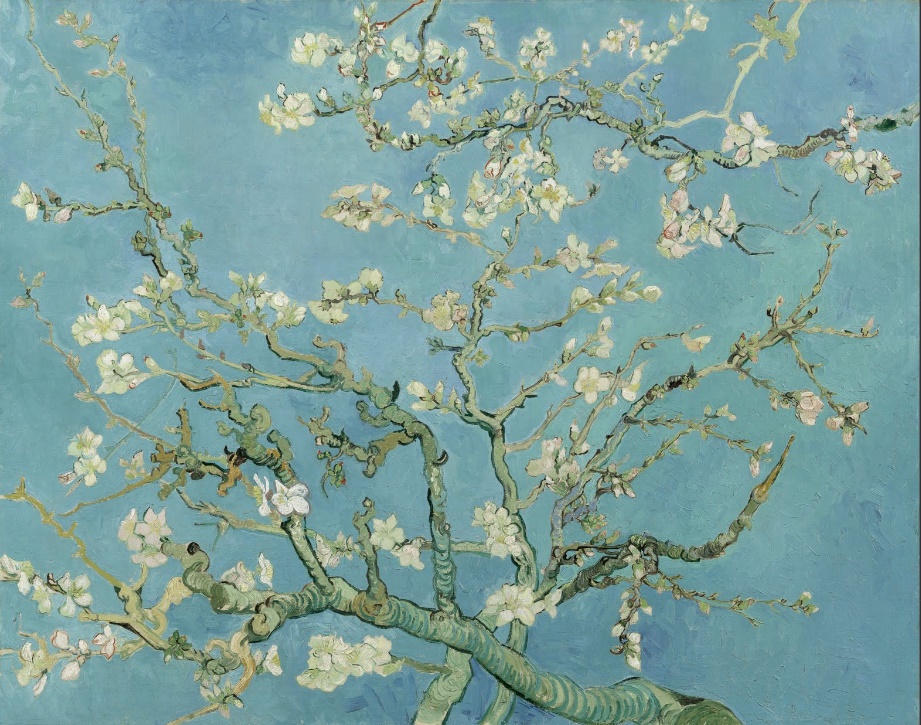Sadism demands a story, so mine began in a puddle of blood. The headless corpse of my mother, the wound of her neck poured and pulsed – her heart had not stopped, for her hate lingered beyond the killing blow. Beneath my mother, the wet black of blood had become an old stain. Beyond that atramental halo a greying expanse of a dying land. The ground transformed into a glutton, drowning in black milk. It was subsumed by the very thing it feasted on; no mouth can master itself. This mixture of dirt and damnation, burning and poisonous, could only ever be expressed by, what else is there left to say than to speak nothing, raw destructivity. From this process, I became whole.
I crawled my way out with the blood, careful not to damage her beautiful body. I carried bits of her and I was covered in her corrosive red – I was new. The stench of festering rot, the crumbled remnants of fever trees, my hands balled into bleeding fists. I turned to look at my mother, and I was immediately purposed. The body lay still, vandalised and symbolic, the head nowhere to be found. Incomplete. Imperfect. It was like a statue in its importance, petrified by my lament, my gaze only scratched the surface of true pulchritude, preserved in marbled stone. I did not know what had happened, I did not understand the meaning of what I saw, but desecration is recognisable by what it undoes.
I would seek the perpetrator for undoing perfection.
The land seemed brittle when I walked. Every step I took, took away from its colour and its heart. When I came upon a village, the inhabitants froze in fear. They and their scarce crops withered from the brush of my little fingers, the wheat retracting into death as to not become mine. Food could not sate this hunger, anyway, and neither could I call possession a priority, for this object of my anger had no material worth. I mourned what I caused, but I knew that no regret could ever outgrew these inflicted wounds. Generations of trauma paced behind my feet as I marched away from Libya.
First, I sought the family I didn’t know I had: my aunts. They would know more about my mother’s passing. They wouldn’t know me. Yet, we all know, eternal bonds are forged in castigative rage. Perhaps wrath – an excess of fear – is a commonality between women, dyed in the wool, red strings of fate that tie instinct to action. My instinct brought me to her uncharted worlds, often conceived as feral, untamed lands, though the question remains of whose maps are they measured with? Men will ignore what lies beyond their knowledge, a boundary marking their territorial downfall. These deepest, unexplored reaches allowed three women to organise in secrecy – we know this as safety.
The eldest, with her broad shoulders and hands shaped to keep what cannot be taken, welcomed me into her home and bosom. To her, I was a shard of resected history which had found its way back by accident. We showed our feelings, the natural thing to do. I, my ire, my eyes clamped shut to dam the tears; she, the sheathed and dulled sword of grief, her red snakes nestled in resignation. She spoke, softly, betraying that her voice must have once had cut and seared and controlled, that it feels like a century since her sister died. I tacitly agreed. We both knew that it may have been that long.
The middlemost sister, though now the youngest, rose and asked me what I aim to do. To avenge my mother, I admitted, and I only needed a name. They had tried before, she admitted sibilantly, but the gods had sided with him. Even the goddess of justice, Dikē herself, prayed to most by other women, could not hold this reprehensible deed as accountable, or its practitioner as responsible. Before I asked who, I wished to know, why? What could make a man behead and trophy a woman? They replied that my mother, no less bestial than her murderer, was an object, not an objection, to the desire of Perseus. Hearing that name, I said my loving farewells and promise of return to Euryace and Stheno, before setting out once more. Homer may liken my sorrow to the destiny of Odysseus – I welcome the justification.
It was halfway, or perhaps one-tenth of the way, or the last thing I saw before Perseus, that I met another woman. Hers were beautiful fixtures – carved, yet in no way louche. She was stone, though not sculpted, and could therefore meet my eyes. She stood still, elegant and wise, unshakable and powerful, and let me slither around her. She knew that I’d been looking for a man, though not out of pithy desire or social need. She applauded my wish to kill: finally, an honest woman.
Sphinx told me about another man: Oedipus was his name. She posed the man a riddle, a simple one, even I’d heard it before, and in the utmost of irony, besought him for an answer. He gave it, triumphantly, the answer was ‘man’, and he mistook her scoff for his victory. The universality of ‘man’ in question was meant as scathe, an admission of self-importance, yet Oedipus never once considered who asks the question, a woman of power. When the world is claimed by men, blind in the false security that all questions and all answers should arrive in their favour. Ignorance can be a shelter, impervious to clever words like a stone, but erosion comes with winds of change.
We shared a bed – our bodies were hard, and like she received my eyes, I received her. In the morning, we parted ways. I was new to it, but I understood that we weren’t to see each other again. Stone warms slowly, but it only took one night.
It wasn’t by any means difficult to track Perseus. The glory of his exploits, the monuments to his slaughter, the affect of his story, all were linear and predictable, both geographically and narratively. These spoils led me to Mycenae, which he founded and which he ruled, a land parasitised. Buildings and statuary sprouted like a fungal growth, celebrating him as the bringer of colony. His means and end were trophies, reducing my mother to contest and her death to game. The marble raised in his name, aesthetics used as a metaphor and as a lie, kalon struck into every etch, they showed his supple beauty, his ideality, his perfection. I finally knew what it looked like. I would undo it.
The only statue in his house was of my mother. Her head – her real head – was in his hands. Her body had been stripped of honour, of her wings. She stood lifeless and solemn, a symbol of triumph for anyone that agreed. What I saw was neither victory nor defeat, however. I saw grace and strength in the face of cruelty. He, however, was laughable. Old, frail, time-tested. He sat skeletally on his throne, but even that exhausted him. The warrior! The victor! The hero! A flatulent man who has outgrown his bored glory, clutching a shield as a mother would a child. Time takes all, eventually, but before it does, men take much more. I conceded to give him what had been a long time coming.
Now there were two statues in his house. A feeble megalomania eternalised, encased in a skin of stone. I did not even give him time to scream, let alone wake. I never once pretended to be the moral party, for what use is morality when it turns murderers into heroes and victims into monsters? I denied him the closure of acceptance or the fairness of facing death; that would require empathy. Empathy, subsequently, requires a subject. And a subject requires some sort of understanding. A meeting of eyes and a nod. Our eyes never met – my gaze saw only resentment, which requires only an object. I objectified him, a petrifying reciprocity.
My mother turned to stone anyone who looked at her. A punishment for the conceit of a gaze.
I turn to stone anyone who I look at. A fury for suffering undergone.
I get no name, nor do I want one, so remember that of the woman who was killed for a story: Medusa. I am the basilisk, a stifled vengeance in the throat of women, and I have avenged them.
If you’re interested in reading my post-writing thoughts on this story and its place in, say, a feminist or representational debate: here.


